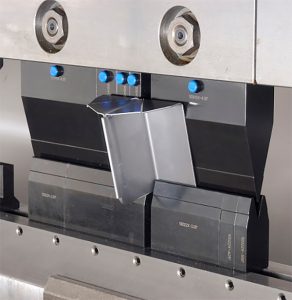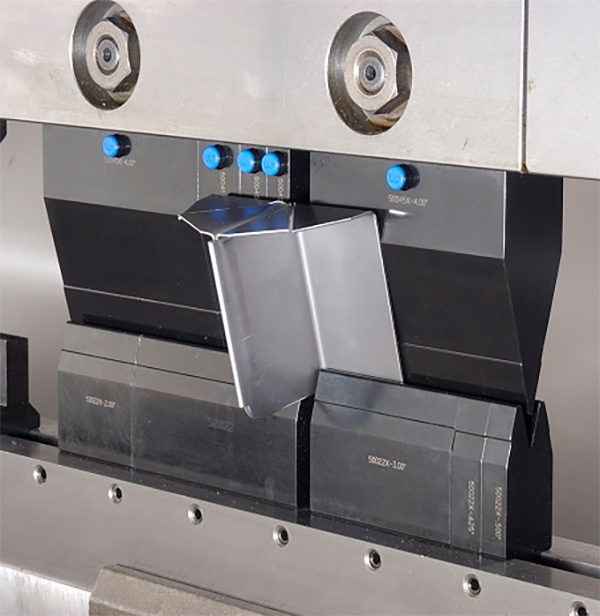According to Wilson Tool, deciding whether or not to invest in special tooling for a particular job is likely to give any fabricator food for thought.

While it’s true that custom press-brake tooling can be more expensive and may require a bit more lead-time than standard tooling, there are also significant benefits over standard tool sets. For instance, custom press-brake tooling makes it possible to solve challenging bending and forming applications while reducing material handling, minimising set-up time and improving the quality of parts.
Working with a tooling manufacturer to determine the best way to form a part can result in a positive ROI in terms of increased productivity and fewer reject parts. Whether faced with a unique part design, the need to simplify a complex bend or improve press brake performance, tooling manufacturers have the experience and knowledge to help shops determine the best way to make a part.
Tooling manufacturers also understand there is more to improving press brake performance than simply reducing the amount of time or number of strokes it takes to form a part. For example, consider the process of forming a channel. With a standard punch and die set, forming a channel requires two strokes of the machine. In contrast, using a custom channel tool, it is possible to produce two bends in one stroke. While certainly reducing the amount of time it takes to produce a part, the added benefit of choosing a channel tool set is the consistency gained in the finished component. As the part is now produced in a single stroke, it only needs to be gauged or located once rather than twice. After all, every time a component needs to be repositioned, re-gauged or relocated is an opportunity for something to go wrong, increasing the likelihood of producing a reject part.
For further information www.wilsontool.com















